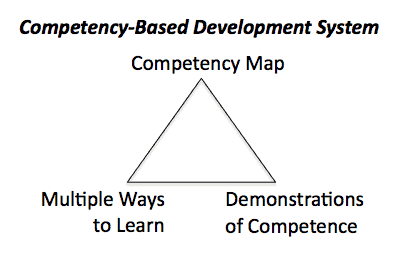10 Ways to Get Smarter in 2015

Getting Smart is a community committed to innovations in human development. We’re excited about the potential for new tools and schools to help teachers boost young adult achievement and completion rates.
We’re excited about the role parents can play in promoting a good early start and guiding digital learning decisions along the way. This month we’ll kick off #SmartParents, a new series with tips and tricks for powerful learning at home.
We’re excited about improved worldwide access to digital learning resources in 2014–more and cheaper access devices and more schools willing to put them to good use. There’s also more and better organized open education resources (#OER). Districts like El Paso ditched expensive textbook adoptions and co-created open science resources.
We’re excited about the potential for young people to chart their own course–an increasingly flexible, affordable, personalized course through secondary and postsecondary education to a career they love. Last month, we launched a blog series, GenDIY, to tell their stories.
We’re also excited about the improved ability for educators to grow and development. Like our friends at GSV, we think “Employers, job seekers, students and institutions will recognize the value of the micro-credential and will begin to adopt the infrastructure necessary to source, deliver and analyze talent (and commensurate credentials) of all kinds.”
In May we published Preparing Teachers for Deeper Learning. It described how personalized, blended and competency-based learning is changing professional growth. It recommends clear competencies for each role, with several ways to learn and demonstrate growth (see featured image). We’re writing the leadership sequel and believe it is possible to create new leadership development pathways where a sequence of work experiences with progressively greater responsibilities are complemented by learning experiences.
Planning for impact. “Resolutions aren’t about these idealistic goals that you have no intention of keeping,” said Greg Garner, “It’s about behavior change. It’s about completely altering the way you choose to make a difference and then making the monthly, weekly, or daily decisions to act.” Garner’s advice made me think about my goals and a few that may be helpful for you.
If you haven’t already, resolve to:
- Make a plan. Create a learning plan. Include short term goals–what you need to learn to do your job better–and longer term goals–what you need to learn to get the job you want.
- Blog weekly about what you’re learning. Set a low bar for contributions–some weeks it may just be some links and videos you learned from–but stick with it (see 10 tips).
- Contribute to a publication. We’re compiling advice for #SmartParents contemplating digital learning options and for #GenDIY–millennials charting their own course through secondary and postsecondary education to a career they love.
- Read widely. Most innovation is translational–and that takes a little lateral thinking. For January, try scanning Mashable, Techcrunch, and PBS Newshour every day–they all have great free mobile apps.
- Give feedback. Providing thoughtful performance feedback is a gift that most people crave but seldom receive. Start with what you appreciate and then add what you’d like to see more of. Make a point of doing it at least quarterly.
- Try something. Try something new every month–a new restaurant, a new news feed, or a new experience.
- Pick a problem and dig in–become an expert and propose a solution. I recently outlined 7 solvable education problems that could use a little elbow grease. Better yet, pick a special need close to you.
- Lead a project. Volunteer to lead a project at school, or work, or in your community. You’ll develop leadership skills and make a contribution.
- Travel internationally. The best way to learn about your own country is by leaving it. My recent trip to Moscow left me with questions, observations, and ideas. Next up for us: Turkey and South Africa.
- Exercise daily. To make a difference for others, you need to take care of yourself. Set the bar low, just do something every day for at least 20 minutes. You’ll be glad you did.
Happy new year! Be well, do good work.






0 Comments
Leave a Comment
Your email address will not be published. All fields are required.